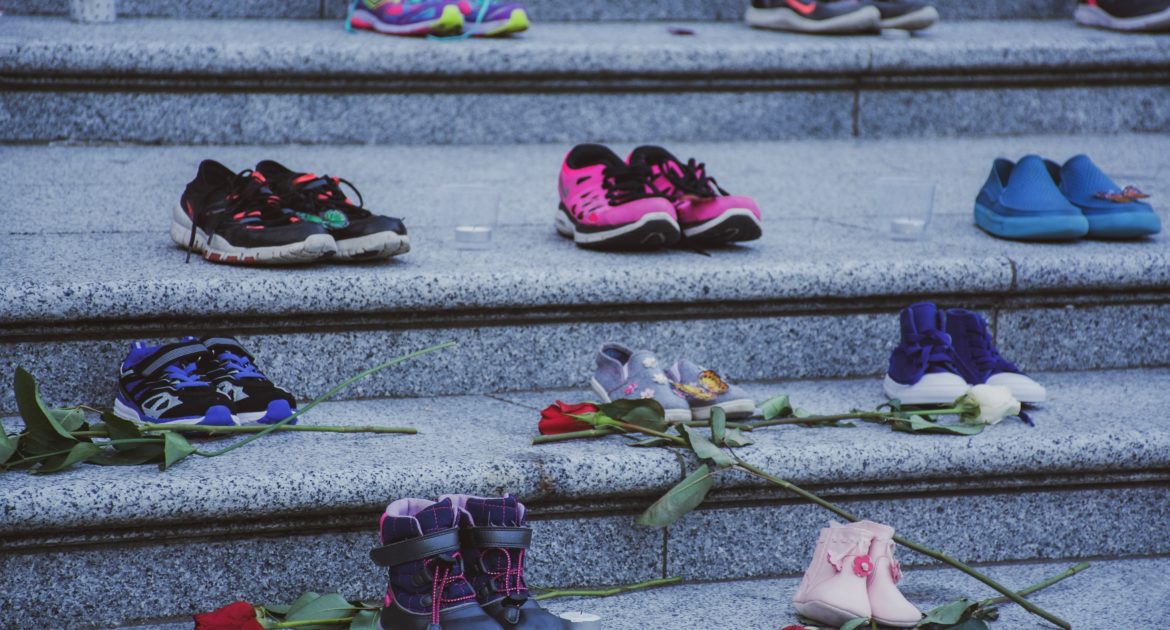
For over a century in Canada, more than 150,000 First Nations, Métis and Inuit children have been violently removed from their families and communities. The recent discovery of the bodies of 215 children by the Tk’emlúps te Secwépemc community in an orphanage in British Columbia is making headlines – and rightly so – but is unfortunately only the visible part of a much larger tragedy, of thousands of children who have been taken from their families, disappeared in unacceptable conditions, violating their most basic rights.
The last residential school closed its doors in 1996, five years after Canada ratified the Convention on the Rights of the Child. By signing the Convention, the country made a commitment to protect all its children in all circumstances. Yet, for more than a century, Canadian authorities have been guilty of serious violations of the fundamental rights of indigenous children, also guaranteed by the United Nations Declaration on the Rights of Indigenous Peoples**.
Through the practice of removing indigenous children from their families, many of their fundamental rights have been violated. To begin with, no child should be separated from his or her family against his or her will, unless his or her safety is at stake (Article 9). These children have been discriminated against on the basis of their origins, with the aim of ‘killing the Indian in the child’, thereby depriving them of their history, culture and language and their right to freedom of thought and conscience (Article 14). In this whole process, it is an understatement to say that the best interests of the child (Article 3), which must, according to international standards, prevail in every decision concerning him or her, were not taken into account. Physical, sexual and mental violence, deplorable living conditions, premature deaths in the residential schools or on leaving (articles 3, 6, 19)… we could draw up an almost exhaustive list of violations committed against the rights of First Nations children.
The macabre discovery of the bodies of 215 children in British Columbia is therefore not a surprise, but rather one more tragedy to be added to these few examples among many other serious breaches committed by Canada towards Aboriginal children over many years. Beyond the residential schools, these violations reflect and cannot be separated from Canada’s history of colonisation, which still struggles to recognise, protect and compensate the affected communities. They also demonstrate the failure of the mechanisms for monitoring and controlling respect for children’s rights, which should enable everyone to play their role in protecting children when their rights are violated. The protection of our children is everyone’s business – States, individuals, communities, populations – and we must remain vigilant, even today.
While we wish we could say that this reality is a thing of the past, much remains to be done to make the rights of First Nations, Métis and Inuit children to health, education, protection, participation, cultural freedom and identity a reality. Justice must also be done so that today’s children can access their history and reconciliation. Let’s make sure that complaints mechanisms against violations of children’s rights are effective and accessible to families as well as to children.
* Source: Truth and Reconciliation Commission of Canada (2015)
** It was only in 2016 that Canada expressed full support for this declaration, having voted against its adoption in 2007, as a symbol of the country’s ambivalence towards its First Nations. Legislation was introduced in 2020 to implement the declaration, illustrating the Canadian government’s belated willingness to act.
For more information and resources:
- Native Land
- Truth and Reconciliation Commission of Canada and 94 Calls to Action
- Convention on the Rights of the Child
- The Hope and Wellness Line provides immediate assistance to all Aboriginal peoples in Canada. Call toll-free 1-855-242-3310 or chat online at hopeforwellness.ca
- Indian Residential Schools Resolution Hotline 1-866-925-4419
- For more information on Indian Residential Schools
- Canada’s Implementation of the UN Declaration on the Rights of Indigenous Peoples
- A literary review produced in 2015 by the IBCR of recent publications on the rights of First Nations and Inuit children in Quebec





